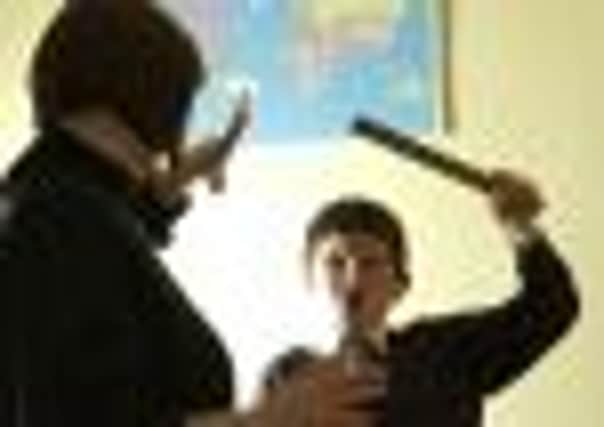Tearaway children ‘terrorise’ Scotland’s teachers


The Scottish Secondary Teachers’ Association (SSTA) said some schools were employing a practice of “you shall not exclude”, forcing teachers to spend time dealing with troublesome pupils at the expense of better-behaved children whose education is being put at risk.
The warning comes after recently published figures showed the number of exclusions in Scotland’s schools is at a five-year low.
Advertisement
Hide AdAdvertisement
Hide AdAnn Ballinger, general-secretary of the SSTA, Scotland’s second-largest teaching union, welcomed the overall figures, but added that failure in a number of schools to deal with unruly pupils was spreading “fear and alarm”.


She urged schools to look at the work of organisations like SkillForce, an educational charity which encourages more effective ways of handling disruptive behaviour.
“Restorative justice, staged intervention and the use of organisations like SkillForce have produced gratifying results in a number of establishments, enabling young people to learn appropriately and teachers to work in a calm and supportive environment,” she said.
“We are, however, particularly concerned that this approach is not being used nationwide and we absolutely deprecate the ‘you shall not exclude’ commandment practised in some establishments.
“Senior managers in a small number of schools are refusing to deal with pupils whose indiscipline is both detrimental to learning and spreading fear and alarm throughout the school community.
“Fortunately, these cases are relatively rare, but this is of no comfort to pupils and staff terrorised in the workplace.”
The union said schools that failed to employ exclusion were damaging the chances of the well-behaved majority. Ms Ballinger added: “These headteachers rapidly lose the confidence of staff at a time when it is needed more than ever.
“Retaining such ill-behaved pupils in school achieves nothing for the pupils themselves, and denies them the opportunity to access the support of expert groups.
Advertisement
Hide AdAdvertisement
Hide Ad“This failure to act can have detrimental, lifelong consequences for the problem pupil, other pupils in the class and all members of staff who have to work in this environment.
“Headteachers who refuse to exclude where exclusion is the appropriate action are putting at risk the education of the well-behaved majority of pupils.”
Figures released by the Scottish Government this month showed there was a total of 26,844 exclusions at schools across Scotland in 2010-11.
The figure, which represented an 11 per cent fall on the previous year, included just 60 cases where pupils were “removed from the register”, meaning they did not return to their school and had to be educated elsewhere.
More than 99 per cent of all exclusions are for a fixed period, meaning pupils are expected to return to their original school once that period is over.
A Scottish Government spokesman said: “The continued fall in the numbers of exclusions is welcome. Exclusion rates fell by 11 per cent in the last school year, a 40 per cent reduction since 2006-7.
“The drop in exclusions is the result of a concerted effort of schools and authorities, supported by the Scottish Government, that aims to support children and young people most at risk of exclusion to stay in school, improve their behaviour and get the most out of their education. Clearly, in some instances, the effects of indiscipline are detrimental to both the pupil concerned and the school community. In such circumstances, it may be necessary to exclude a pupil from school.”
Earlier this year, Brigadier Hugh Monro, Scotland’s chief inspector of prisons, called for a ban on exclusions in a bid to steer children away from a life of crime.
Advertisement
Hide AdAdvertisement
Hide AdHe said pupils whose behaviour merited suspension or expulsion should be taught at “inclusion units”, similar to one at Dunfermline High School.
The Scottish Conservatives have called for “second chance centres”, which would allow unruly pupils to be taken out of mainstream education and taught in separate centres until they learn to refocus their lives.a